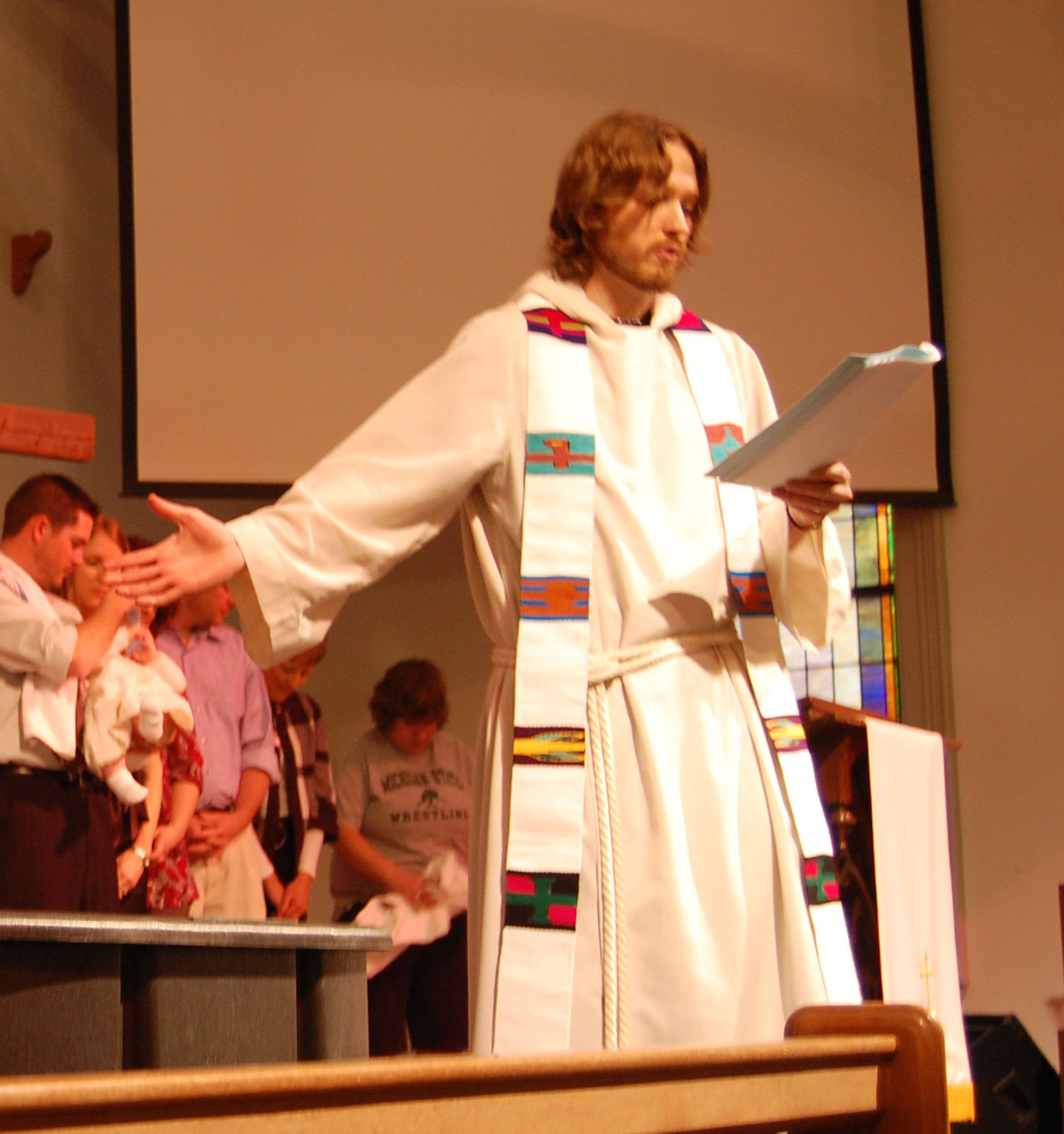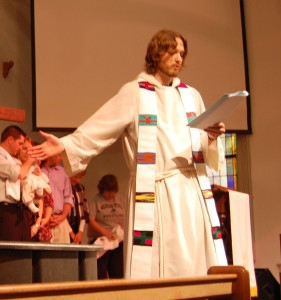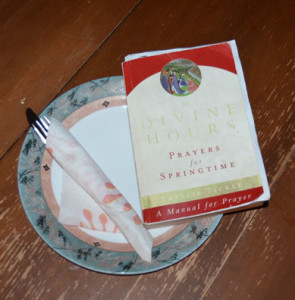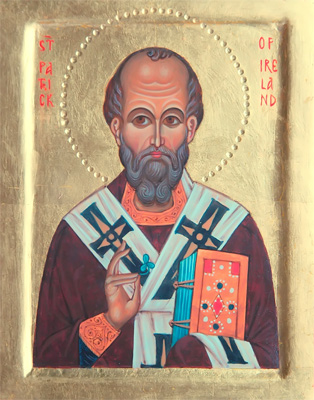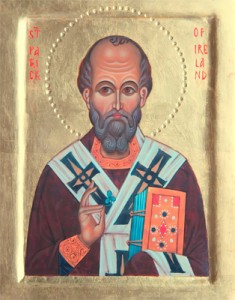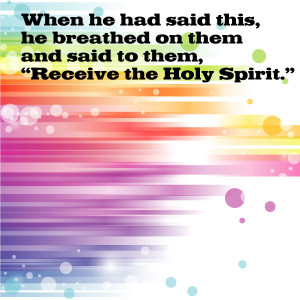 This past Sunday I preached from John 20:19-31, and one of the things that often happens is the passage contains several powerful points that cannot all be included in a single sermon. So I thought I’d blog about one aspect that went a different direction than the sermon did this week. When Jesus first encounters the disciples in John 20, he breathes on them and tells them to receive the Holy Spirit.
This past Sunday I preached from John 20:19-31, and one of the things that often happens is the passage contains several powerful points that cannot all be included in a single sermon. So I thought I’d blog about one aspect that went a different direction than the sermon did this week. When Jesus first encounters the disciples in John 20, he breathes on them and tells them to receive the Holy Spirit.
“Jesus said to them again, ‘Peace be with you. As the Father has sent me, so I send you.’ When he had said this, he breathed on them and said to them, ‘Receive the Holy Spirit. If you forgive the sins of any, they are forgiven them; if you retain the sins of any, they are retained.’” John 20:21-23
Within these three verses we have some strange things going on: Jesus breathing on the disciples and then Jesus telling them they have authority over forgiveness of sins. The first part about breathing on the disciples is weird and the second part suggesting that the disciples (and church?) have any say in forgiveness is offensive to our sensibilities. What is going on here?
Continue reading “Breathing and Forgiving?”



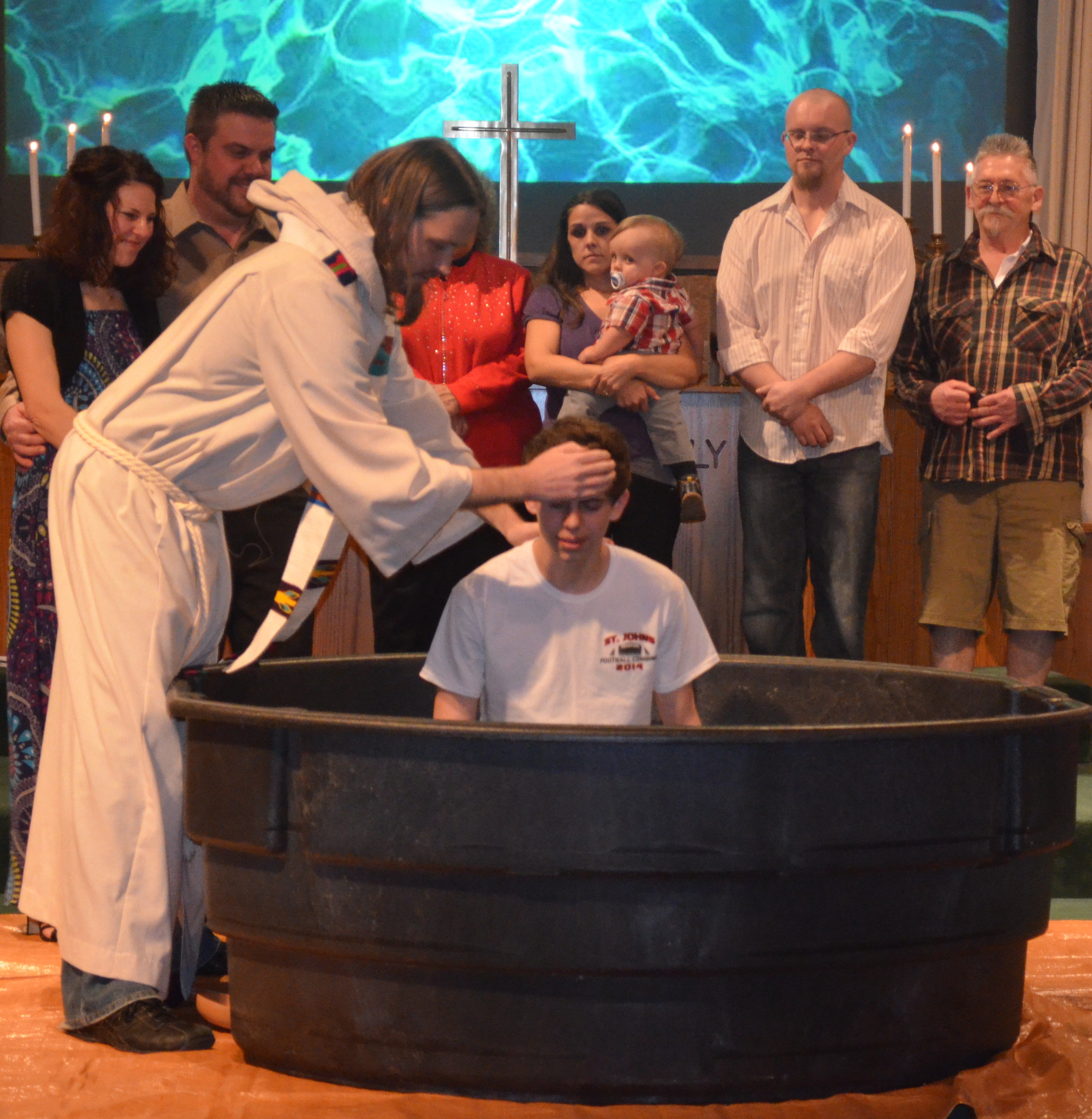
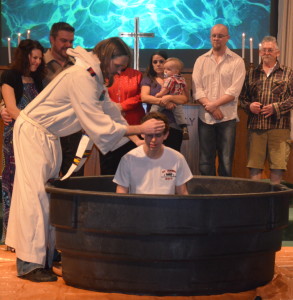

 On Maundy Thursday this year, we will have a foot washing service following our Agape meal. Foot washing has not been a practice in our culture and is not only foreign to us, but uncomfortable. Why do we do it then?
On Maundy Thursday this year, we will have a foot washing service following our Agape meal. Foot washing has not been a practice in our culture and is not only foreign to us, but uncomfortable. Why do we do it then?